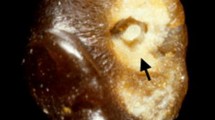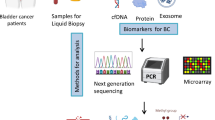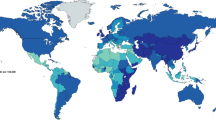Abstract
Purpose
Urinary microbiota has been found to play a key role in numerous urological diseases. The aim of this systematic review is to depict the role of urinary microbiota in the pathogenesis, diagnosis, prognosis, and treatment of urological tumors, including bladder cancer (BCa), prostate cancer (PCa) and renal cell carcinoma (RCC).
Methods
A systematic PubMed and Scopus search was undergone from inception through June 2021 for studies investigating urinary microbiota alterations in urological tumors. Study selection followed the PRISMA statement. Phylum, family, genus and species of each bacterium in cancer patients and controls were recorded.
Results
Twenty-one studies with 1194 patients (748 cancer patients and 446 controls) were included in our final analysis. Certain bacterial phylum, family, genus, and species were more predominant in each of BCa, PCa and RCC patients compared to controls. Abundance and specificity of urinary microbiota were prognosticators for: (1) recurrence, distinguishing recurrent from non-recurrent BCa, (2) disease stage, distinguishing non-muscle invasive from muscle invasive BCa, and (3) disease grade, distinguishing high- vs. low-grade PCa and BCa. Dietary, environmental and geographic patterns influenced urinary microbiota. Urinary microbiota of benign prostatic hyperplasia was different from PCa.
Conclusion
Urological cancer patients have an altered urinary microbiota compared to controls. This may predict recurrence, disease stage and disease grade of these tumors. Further prospective studies are needed to depict a potential influence on therapeutic outcomes.



Similar content being viewed by others
References
Turnbaugh PJ, Ley RE, Hamady M, Fraser-Liggett CM, Knight R, Gordon JI (2007) The human microbiome project. Nature 449(7164):804–810
Hilt EE, McKinley K, Pearce MM et al (2014) Urine is not sterile: use of enhanced urine culture techniques to detect resident bacterial flora in the adult female bladder. J Clin Microbiol 52(3):871–876
Antunes-Lopes T, Vale L, Coelho AM et al (2020) The role of urinary microbiota in lower urinary tract dysfunction: a systematic review. Eur Urol Focus 6(2):361–369
Pearce MM, Zilliox MJ, Rosenfeld AB et al (2015) The female urinary microbiome in urgency urinary incontinence. Am J Obstet Gynecol 213(3):347.e1-347.e11
Siddiqui H, Lagesen K, Nederbragt AJ, Jeansson SL, Jakobsen KS (2012) Alterations of microbiota in urine from women with interstitial cystitis. BMC Microbiol 12(1):205
Khasriya R, Sathiananthamoorthy S, Ismail S et al (2013) Spectrum of bacterial colonization associated with urothelial cells from patients with chronic lower urinary tract symptoms. J Clin Microbiol 51(7):2054–2062
Shoskes DA, Altemus J, Polackwich AS, Tucky B, Wang H, Eng C (2016) The urinary microbiome differs significantly between patients with chronic prostatitis/chronic pelvic pain syndrome and controls as well as between patients with different clinical phenotypes. Urology 92:26–32
Nicolaro M, Portal DE, Shinder B, Patel HV, Singer EA (2020) The human microbiome and genitourinary malignancies. Ann Transl Med 8(19):1245–1245
Markowski MC, Boorjian SA, Burton JP et al (2019) The microbiome and genitourinary cancer: a collaborative review. Eur Urol 75(4):637–646
Pederzoli F, Bandini M, Raggi D et al (2021) Is there a detrimental effect of antibiotic therapy in patients with muscle-invasive bladder cancer treated with neoadjuvant pembrolizumab? Eur Urol S0302–2838(21):00387
Pak S, Kim S-Y, Kim SH et al (2021) Association between antibiotic treatment and the efficacy of intravesical BCG therapy in patients with high-risk non-muscle invasive bladder cancer. Front Oncol 11:570077
Ueda K, Yonekura S, Ogasawara N et al (2019) The impact of antibiotics on prognosis of metastatic renal cell carcinoma in Japanese patients treated with immune checkpoint inhibitors. Anticancer Res 39(11):6265–6271
Bučević Popović V, Šitum M, Chow C-ET, Chan LS, Roje B, Terzić J (2018) The urinary microbiome associated with bladder cancer. Sci Rep 8(1):12157
Wu P, Zhang G, Zhao J et al (2018) Profiling the urinary microbiota in male patients with bladder cancer in China. Front Cell Infect Microbiol 8:167
Bi H, Tian Y, Song C et al (2019) Urinary microbiota—a potential biomarker and therapeutic target for bladder cancer. J Med Microbiol 68(10):1471–1478
Pederzoli F, Ferrarese R, Amato V et al (2020) Sex-specific alterations in the urinary and tissue microbiome in therapy-naïve urothelial bladder cancer patients. Eur Urol Oncol 3(6):784–788
Mansour B, Monyók Á, Makra N et al (2020) Bladder cancer-related microbiota: examining differences in urine and tissue samples. Sci Rep 10(1):11042
Mai G, Chen L, Li R, Liu Q, Zhang H, Ma Y (2019) Common core bacterial biomarkers of bladder cancer based on multiple datasets. Biomed Res Int 2019:4824909
Zeng J, Zhang G, Chen C et al (2020) Alterations in urobiome in patients with bladder cancer and implications for clinical outcome: a single-institution study. Front Cell Infect Microbiol 10:555508
Liu F, Liu A, Lu X et al (2019) Dysbiosis signatures of the microbial profile in tissue from bladder cancer. Cancer Med 8(16):6904–6914
Nadler N, Kvich L, Bjarnsholt T, Jensen JB, Gögenur I, Azawi N (2021) The discovery of bacterial biofilm in patients with muscle invasive bladder cancer. APMIS 129(5):265–270
Moynihan M, Sullivan T, Provenzano K, Rieger-Christ K (2019) Urinary microbiome evaluation in patients presenting with hematuria with a focus on exposure to tobacco smoke. Res Rep Urol 11:359–367
Hussein AA, Elsayed AS, Durrani M et al (2021) Investigating the association between the urinary microbiome and bladder cancer: an exploratory study. Urol Oncol. https://doi.org/10.1016/j.urolonc.2020.12.011
Oresta B, Braga D, Lazzeri M et al (2021) The microbiome of catheter collected urine in males with bladder cancer according to disease stage. J Urol 205(1):86–93
Chipollini J, Wright JR, Nwanosike H et al (2020) Characterization of urinary microbiome in patients with bladder cancer: results from a single-institution, feasibility study. Urol Oncol 38(7):615–621
Hourigan SK, Zhu W, Wong WS et al (2020) Studying the urine microbiome in superficial bladder cancer: samples obtained by midstream voiding versus cystoscopy. BMC Urol 20(1):5
Alexeyev O, Bergh J, Marklund I et al (2006) Association between the presence of bacterial 16S RNA in prostate specimens taken during transurethral resection of prostate and subsequent risk of prostate cancer (Sweden). Cancer Causes Control 17(9):1127–1133
Shrestha E, White JR, Yu S-H et al (2018) Profiling the urinary microbiome in men with positive versus negative biopsies for prostate cancer. J Urol 199(1):161–171
Alanee S, El-Zawahry A, Dynda D et al (2019) A prospective study to examine the association of the urinary and fecal microbiota with prostate cancer diagnosis after transrectal biopsy of the prostate using 16sRNA gene analysis. Prostate 79(1):81–87
Yu H, Meng H, Zhou F, Ni X, Shen S, Das UN (2015) Urinary microbiota in patients with prostate cancer and benign prostatic hyperplasia. Arch Med Sci 11(2):385–394
Cavarretta I, Ferrarese R, Cazzaniga W et al (2017) The microbiome of the prostate tumor microenvironment. Eur Urol 72(4):625–631
Wang J, Li X, Wu X et al (2021) Uncovering the microbiota in renal cell carcinoma tissue using 16S rRNA gene sequencing. J Cancer Res Clin Oncol 147(2):481–491
Heidler S, Lusuardi L, Madersbacher S, Freibauer C (2020) The microbiome in benign renal tissue and in renal cell carcinoma. Urol Int 104(3–4):247–252
McConnell MJ, Actis L, Pachón J (2013) Acinetobacter baumannii: human infections, factors contributing to pathogenesis and animal models. FEMS Microbiol Rev 37(2):130–155
Sheweita SA, Alsamghan AS (2020) Molecular mechanisms contributing bacterial infections to the incidence of various types of cancer. Mediat Inflamm 2020:4070419
Drott JB, Alexeyev O, Bergström P, Elgh F, Olsson J (2010) Propionibacterium acnes infection induces upregulation of inflammatory genes and cytokine secretion in prostate epithelial cells. BMC Microbiol 10:126
Derosa L, Hellmann MD, Spaziano M et al (2018) Negative association of antibiotics on clinical activity of immune checkpoint inhibitors in patients with advanced renal cell and non-small-cell lung cancer. Ann Oncol 29(6):1437–1444
Derosa L, Routy B, Fidelle M et al (2020) Gut bacteria composition drives primary resistance to cancer immunotherapy in renal cell carcinoma patients. Eur Urol 78(2):195–206
Hopkins AM, Kichenadasse G, Karapetis CS, Rowland A, Sorich MJ (2020) Concomitant antibiotic use and survival in urothelial carcinoma treated with atezolizumab. Eur Urol 78(4):540–543
Siddiqui H, Nederbragt AJ, Lagesen K, Jeansson SL, Jakobsen KS (2011) Assessing diversity of the female urine microbiota by high throughput sequencing of 16S rDNA amplicons. BMC Microbiol 11:244
Neugent ML, Hulyalkar NV, Nguyen VH, Zimmern PE, De Nisco NJ (2020) Advances in understanding the human urinary microbiome and its potential role in urinary tract infection. MBio 11(2):e00218-20
Acknowledgements
None.
Funding
This study did not receive any funding.
Author information
Authors and Affiliations
Contributions
AK, GM: study conception, protocol development, data analysis, manuscript writing. SA: study conception, protocol development, manuscript writing, supervision. YED, MF, SD: data collection, data analysis, manuscript writing. HK: data analysis, manuscript editing. RH: data collection, manuscript writing. GBK: study conception, manuscript editing. FA: protocol development, manuscript editing, supervision. TR: project leader, study conception, protocol development, manuscript editing, supervision.
Corresponding author
Ethics declarations
Ethical approval
This study was performed in line with the principles of the Declaration of Helsinki. No approval from the ethics committee was necessary.
Conflict of interests
All the authors have no conflict of interest to disclose.
Additional information
Publisher's Note
Springer Nature remains neutral with regard to jurisdictional claims in published maps and institutional affiliations.
Rights and permissions
About this article
Cite this article
Karam, A., Mjaess, G., Albisinni, S. et al. Uncovering the role of urinary microbiota in urological tumors: a systematic review of literature. World J Urol 40, 951–964 (2022). https://doi.org/10.1007/s00345-021-03924-x
Received:
Accepted:
Published:
Issue Date:
DOI: https://doi.org/10.1007/s00345-021-03924-x




